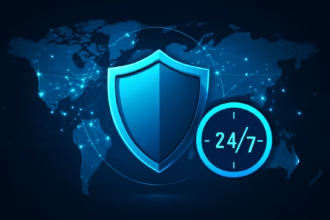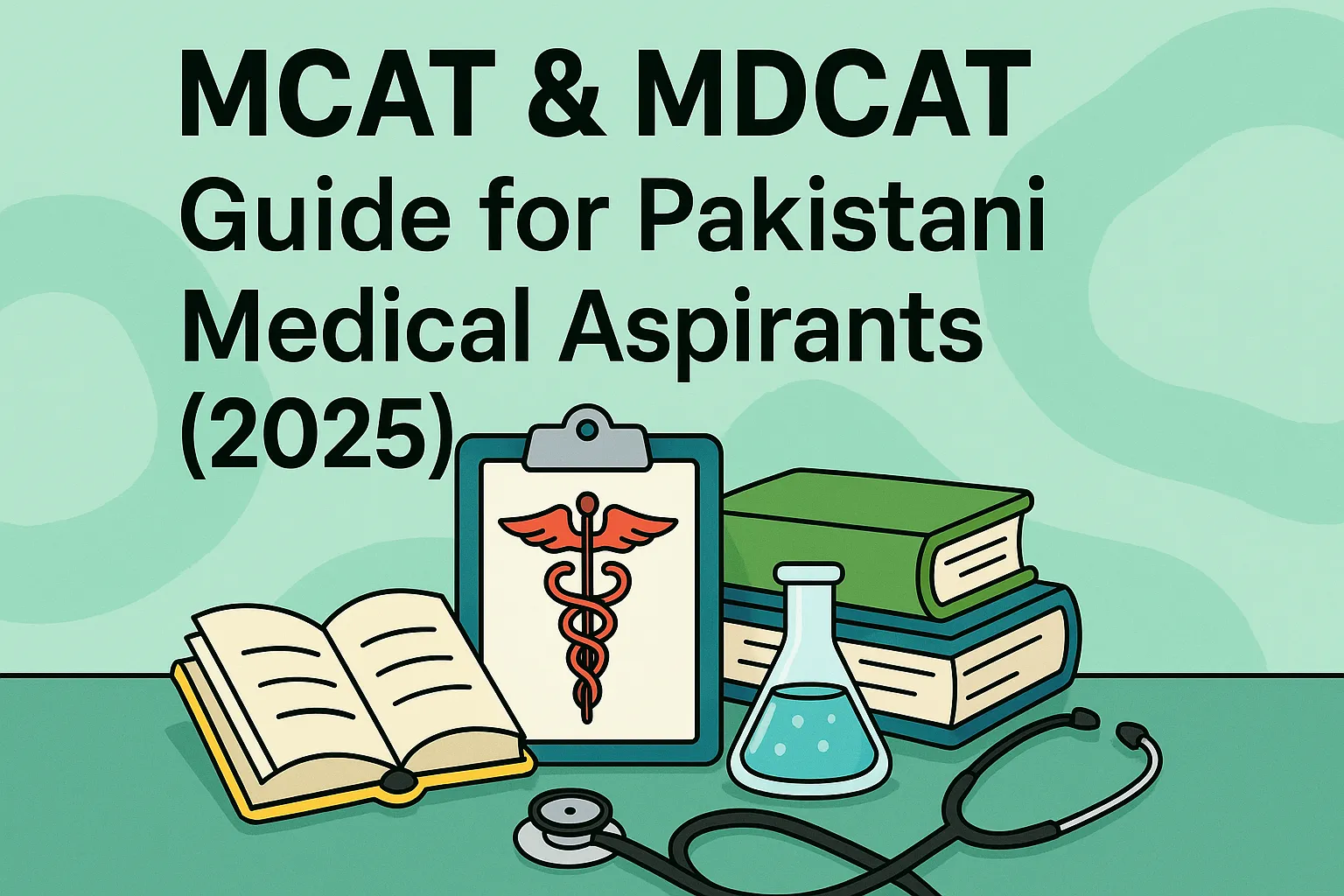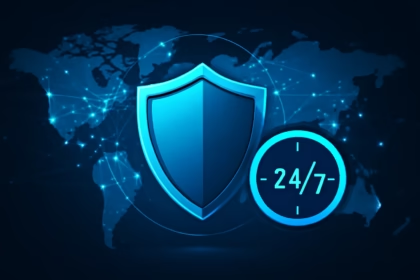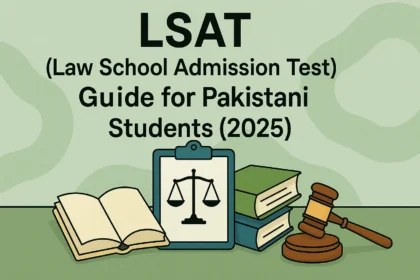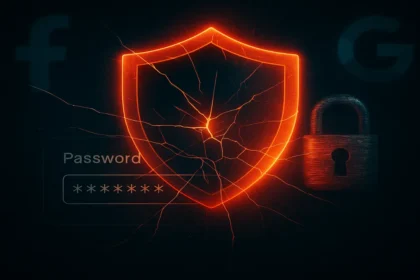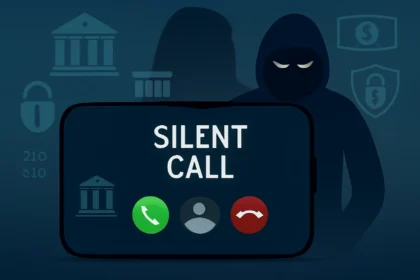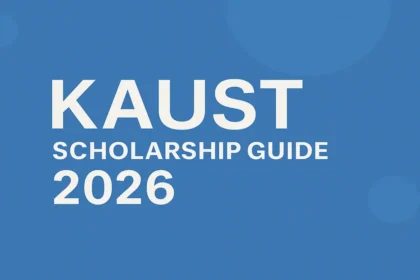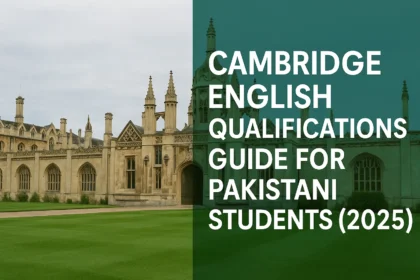Embarking on a journey toward medical education means clearing a competitive entrance exam. For Pakistanis, the choice is between the international MCAT (for US, Canada, and some global schools) and the national MDCAT (for all Pakistani medical/dental colleges). Here’s a comprehensive, up-to-date, and practical guide with patterns, eligibility, fees, and tips—plus easy side-by-side summary tables.
🏥 What Are MCAT & MDCAT?
Name Purpose Where Accepted MCAT For medical school admission abroad USA, Canada, some global MDCAT For medical/dental college in Pakistan All Pakistan
✏️ Exam Structure & Pattern
MCAT (AAMC – International)
Section Qs Time Content Score Range Chemical & Physical Foundations 59 95 min Chem, Physics, Biochem, Biology 118–132 Critical Analysis & Reasoning (CARS) 53 90 min Text analysis, Social Science, Reasoning 118–132 Biological & Biochemical Foundations 59 95 min Biology, Biochem, Chem, Org. Chem 118–132 Psych, Social & Biological Foundations 59 95 min Psychology, Sociology, Biology 118–132 Total 230 ~7.5hr with breaks 472–528
MDCAT (Pakistan)
Section Qs Weight Key Topics Biology 68 34% Cells, genetics, physiology Chemistry 54 27% Physical/Inorganic/Organic Physics 54 27% Electromagnetism, mechanics English 18 9% Vocabulary, grammar, comprehension Logical Reasoning 6 3% Critical thinking & logic Total 200 100%
Duration: MDCAT is 3.5 hours, computer-based or paper-basedNo negative marking
🎯 Eligibility Criteria
MCAT
Education: Minimum 2 years of undergraduate/pre-medical coursework (biology, chemistry, physics)Age: Typically 18+ (no strict lower limit)Nationality: Open to all—must have a valid passport for international test centersWho can apply: Undergraduates, graduates, or anyone planning to apply to med schools in the US, Canada, or other MCAT-accepting countries
MDCAT
Education: HSSC (Pre-Medical) / A Levels / equivalent with at least 70% marks (can apply provisionally if awaiting results)Age: Usually 17 years or older at time of admissionNationality: Pakistani citizens, eligible overseas Pakistanis, and foreign nationals (check PMDC rules for international candidates)Who can apply: Anyone meeting qualification/marks and age criteria
💰 Fees & Registration
Exam Fee (2025) Payment/Notes MCAT $345 (std), +$120 int’l Pay online via AAMC MCAT (credit/debit card); nearest centers: Gulf/India MDCAT PKR 8,000 (PK), 40,000 (int’l) Register via PMDC Portal , pay via bank, upload challan
MCAT : Not conducted in Pakistan, so travel is required.MDCAT : Conducted nationwide in major cities and select international centers.
📆 Test Dates & Score Validity
Exam Test Period Results Valid For Retake Details MCAT Jan–Sept, many dates 3 years Max 7 attempts (lifetime), 3/year MDCAT Aug–Sep (annual) 1 year Sit new test annually; no attempt limit
🏆 Prep & Tips
Get the Syllabus: Use the official AAMC guide for MCAT, PMDC syllabus for MDCAT.Mock Tests: Practice with full-length mocks and review answers.Materials: MCAT—Kaplan, Princeton, AAMC; MDCAT—Punjab boards, MDCATGuru, online q-banks.Strategy: Prioritize tough subjects (MCAT: CARS & Biochem; MDCAT: Biology). Practice time management!Group Study: Join peer groups, local academies, or find online prep communities.
📊 Quick Comparison Table
Feature MCAT (International) MDCAT (Pakistan) Length ~7.5 hours 3.5 hours Sections 4 5 Questions 230 200 Test Format Computer-based (CBT) Paper/CBT Score 472–528 200 (max) Test Centers Not PK (nearby abroad) All PK major cities & abroad Who Accepts US/Canada/global med schools PK medical/dental schools Fee (2025 est.) $345–465 (PKR 136,000+) PKR 8,000–40,000 Validity 3 years 1 year Min. Ed. 2 years uni/pre-med 12th grade/Int FSC pre-med, 70%+
🏁 Takeaways
MCAT is your passport for medicine in the US/Canada—lengthy, reasoning-based, and requires travel.MDCAT is homegrown, affordable, and mandatory for entry to any Pakistani (and some overseas) med/dental college.Eligibility: Clearly check marks, minimum qualifications, age, and documentation for each exam’s registration!Preparation is key: Use official resources, practice under exam-like conditions, and focus on your weak areas.
Always check official websites for latest policies, dates, and changes:
Good luck on your journey to becoming a future doctor—choose wisely, prepare well, and aim high!


